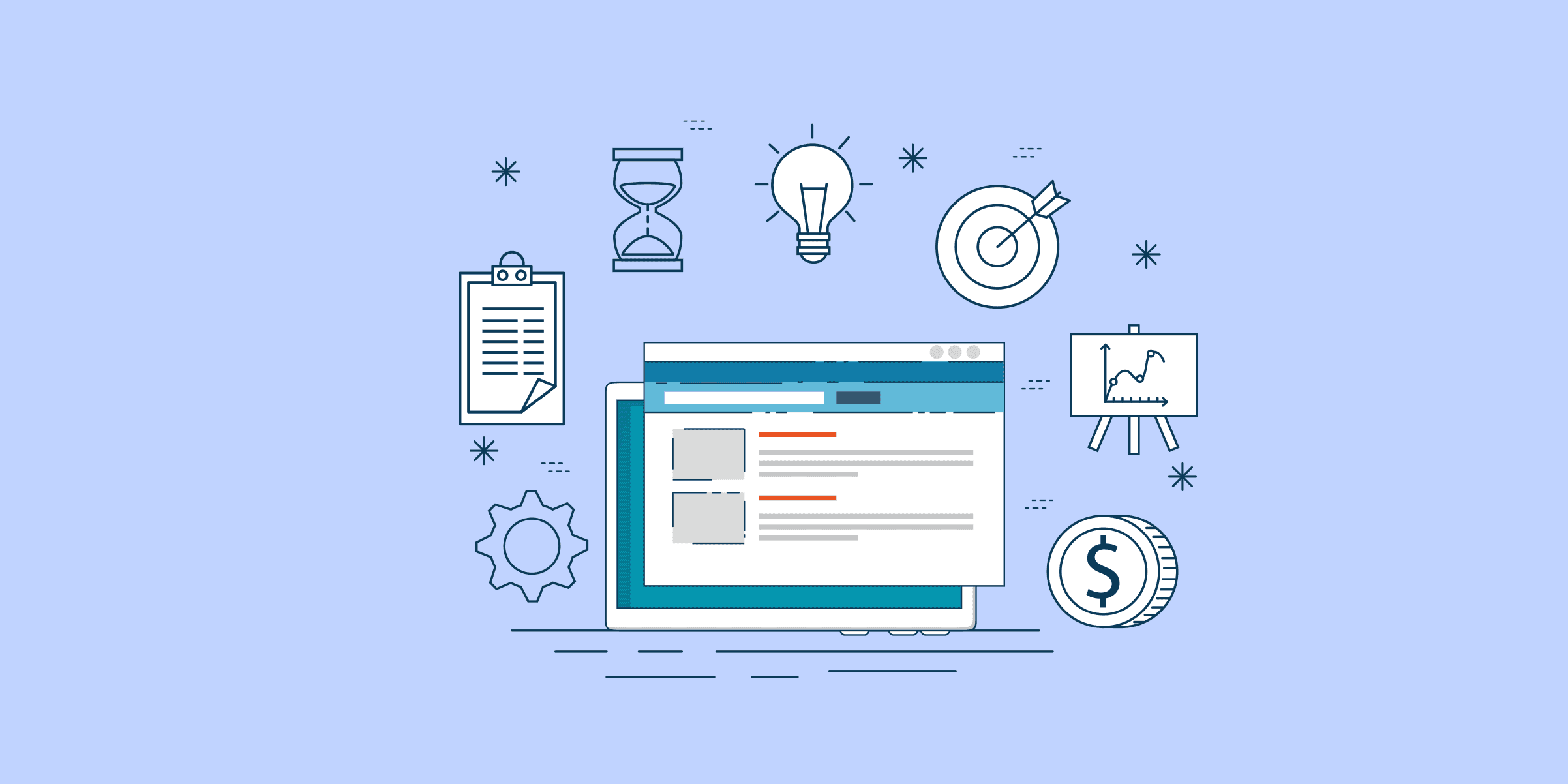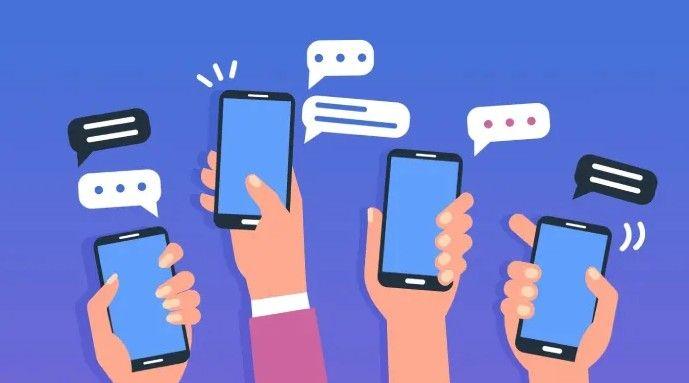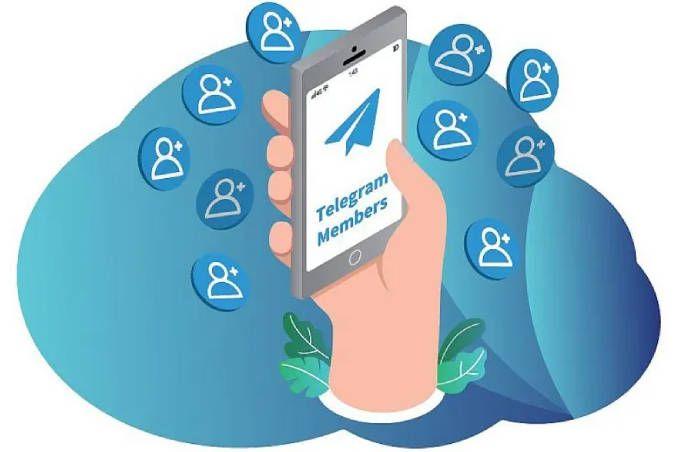What is AI Marketing – A Complete Guide

LIKE.TG 成立于2020年,总部位于马来西亚,是首家汇集全球互联网产品,提供一站式软件产品解决方案的综合性品牌。唯一官方网站:www.like.tg
AI-powered marketing automation has emerged as a leading trend, surpassing industry buzz. This transformative technology, particularly when integrated with LIKE.TG, reshapes how brands engage with their audience, providing exceptional experiences while concurrently reducing operational costs.
What is AI (Artificial Intelligence) Marketing
Artificial Intelligence (AI) marketing represents a paradigm shift in how businesses approach marketing strategies. By harnessing the power of AI, companies can automate and enhance various marketing processes, unlocking a world of possibilities and revolutionising how they engage with their target audience.
AI marketing leverages data, analytics, and machine learning to optimise marketing efforts, personalise customer experiences, and elevate overall marketing efficiency and effectiveness. This data-driven approach empowers businesses to make informed decisions and accurately identify trends, patterns, and customer preferences. With these insights, companies can tailor their marketing campaigns to resonate with their audience, increasing engagement, conversions, and customer loyalty.
Moreover, AI marketing streamlines marketing operations by automating repetitive and time-consuming tasks, allowing marketing teams to focus on more strategic and creative pursuits. This automation encompasses content generation, social media management, email marketing, and customer service, ensuring a consistent and engaging presence across multiple channels.
AI marketing is not just a buzzword; it’s a transformative force reshaping the marketing landscape. By embracing AI, businesses gain access to a wealth of new tools, data science and technologies, empowering them to reach, engage, and convert their target audience with unparalleled precision and effectiveness. In today’s competitive business environment, AI marketing has become an indispensable tool for businesses seeking to thrive and stay ahead of the curve. AI Marketing encompasses various use cases, including:
1. Data Analysis: Automating the collection and analysis of large volumes of marketing data from different campaigns and programs, eliminating the need for manual sorting.
2. Content Generation: AI generates both short and long-form content for marketing purposes, including video captions, email subject lines, web copy, blogs, and more.
3. Media Buying: Predicting a business’s most effective advertisement and media placements, maximising the return on investment (ROI) of marketing strategies while reaching the target audience.
4. Real-time Personalisation: Modifying a customer’s experience with marketing assets, such as web pages, social media posts, or emails, to align with their past preferences and encourage specific actions, such as clicking a link, signing up, or purchasing.
5. Natural Language Processing (NLP): Utilising AI to generate human-like language for content creation, customer service bots, personalised experiences, and more.
6. Automated Decision-Making: Assisting businesses in deciding which marketing or business growth strategies to employ based on historical or external data inputs.
By adopting AI marketing strategies, businesses unlock the potential to deliver exceptional customer experiences, build stronger customer relationships, and drive sustainable growth in the ever-evolving digital landscape. AI marketing represents the future of marketing, and businesses that embrace its transformative power will be well-positioned to succeed in the years to come.
How does AI Marketing work?
AI marketing uses artificial intelligence technologies to automate and enhance marketing processes. These technologies can be applied to a wide range of marketing tasks, with AI marketing platforms including:
Marketing Automation: AI automates lead generation, scoring, and customer retention tasks. By leveraging AI, marketers can identify potential customers and engage with them at the optimal time when they are most likely to respond positively to marketing messages.
Content creation: AI can generate marketing content, such as blog posts, articles, and social media posts. This can save businesses time and money while still producing high-quality content.
Customer service: AI can provide customer service by answering questions and resolving issues. This can free up human customer service representatives to focus on more complex tasks.
Predictive analytics: AI can analyse data and predict customer behaviour. This information can be used to personalise marketing campaigns and improve customer engagement.
Personalisation: AI technologies create customer profiles based on data gathered from their purchase history and interactions. Marketers can then deliver targeted advertisements, offers, and new products that align with customers’ preferences. Targeted marketing, powered by customer data, enhances engagement, conversion rates, and overall marketing return on investment (ROI).
Forecasting: AI serves as a valuable tool for predictive analytics and forecasting. Predictive analytics utilises data from past customer interactions to anticipate their future actions. When applied to larger audience segments and scaled up, AI can also forecast business metrics such as revenue outcomes, providing valuable insights for strategic decision-making.
Overall, AI marketing is a powerful tool that can help businesses reach, engage, and convert their target audience. By leveraging AI, companies can gain a competitive edge and thrive in the digital age.
How is AI changing digital marketing?
Artificial Intelligence (AI) has emerged as a transformative force that is reshaping the digital marketing landscape. Its capabilities are automating mundane tasks and empowering marketers to delve deeper into strategic initiatives. One remarkable application of AI lies in crafting personalised customer experiences. By leveraging AI-driven tools, marketers can analyse customer behaviour, preferences, and past interactions to deliver tailored product or service recommendations. This personalised approach fosters stronger customer relationships and enhances the overall brand experience.
Furthermore, AI is pivotal in aiding marketers to comprehend their customers more profoundly. Through meticulous customer data analysis, AI uncovers hidden patterns, trends, and insights. With this knowledge, marketers can devise targeted and effective marketing strategies that resonate with their audience.
Beyond enhancing customer experiences, AI also revolutionises how marketers measure their campaigns. Real-time tracking and analysis of campaign performance empower marketers to make informed adjustments, ensuring optimal allocation of resources and budget. This data-driven approach minimises guesswork and maximises return on investment.
In content creation, AI proves to be an invaluable asset. AI identifies topics and interests that captivate the target audience by analysing customer data. This enables marketers to craft highly relevant, engaging content that resonates with their customers. Compelling content fosters brand loyalty and drives conversions, propelling businesses toward success.
Examples of AI’s practical applications in digital marketing abound. Chatbots, powered by AI, simulate human conversations, providing round-the-clock customer support and assistance. Personalised recommendations, driven by customer data, enhance user experience and boost sales. Dynamic pricing, enabled by AI, optimises pricing strategies based on market dynamics, maximising profits while ensuring competitive offerings. Fueled by AI’s data analysis capabilities, predictive analytics empowers marketers to anticipate customer behaviour and trends. This foresight allows for developing highly targeted and successful digital marketing campaigns.
As AI evolves, its impact on digital marketing will only deepen. The future holds boundless opportunities for marketers to harness the power of AI, unlocking new frontiers of innovation and driving unprecedented success.
What Are the Types of AI Marketing Tools?
In the marketing realm, artificial intelligence (AI) has emerged as a game-changer, offering many solutions that automate and enhance various tasks.
1. Machine Learning:
Machine learning, driven by AI, utilises computer algorithms to automatically analyse information and enhance digital marketing campaigns based on experience. By leveraging relevant historical data, machine learning devices can inform marketers about effective strategies and help avoid repeating past mistakes.
2. Big Data and Analytics:
The rise of digital media has generated a significant amount of “big data,” presenting opportunities for marketers to gain insights and accurately assess value across different channels. However, the abundance of data can be overwhelming. AI marketing comes to the rescue by rapidly sifting through the data, filtering it to its essentials, and providing analysis. It can also recommend the most valuable elements for future marketing campaigns.
3. AI Marketing Platforms & Tools:
Effective AI-powered marketing solutions offer digital marketers centralised platforms for managing the vast amounts of collected consumer data. These AI marketing platforms extract valuable marketing intelligence from the target audience, empowering marketers to make data-driven decisions about effective outreach strategies. For instance, frameworks like Bayesian Learning and Forgetting aid marketers in understanding a customer’s receptiveness to specific digital marketing efforts, leading to improved campaign targeting.
4. Content creation:
Generating high-quality articles, blog posts, social media updates, and personalised emails. By analysing vast amounts of data, AI tools identify trends, customer preferences, and relevant topics, allowing businesses to create content that resonates with their target audience. Additionally, AI optimises content by recommending keywords and phrases that enhance search engine rankings and drive organic traffic.
5. Personalisation:
Another critical aspect of modern marketing. AI algorithms analyse customer data to gain profound insights into individual preferences, behaviours, and pain points. This information is then leveraged to create personalised marketing campaigns, product recommendations, and customer experiences. By delivering tailored content and offers, businesses enhance engagement, conversions, and overall customer satisfaction.
6. Voice search:
With the proliferation of voice-activated devices like smart speakers and smartphones, voice search has become a critical channel for businesses to connect with customers. AI-powered voice search optimisation ensures businesses are easily discoverable to customers using voice commands, maximising their visibility in voice search results.
These examples illustrate the diverse spectrum of AI marketing solutions available. As AI technology evolves, we can anticipate even more innovative and advanced solutions to revolutionise how businesses market their products and services.
What Are the Benefits of Leveraging AI in your Marketing strategy?
Integrating AI into marketing practices has unlocked a treasure trove of benefits that can dramatically transform a business’s approach to reaching and engaging its target audience. One of the most profound advantages of AI marketing is its ability to elevate customer experiences. By deploying AI-powered chatbots and virtual assistants, companies can provide immediate and personalised responses to customer inquiries, ensuring a smooth and enjoyable customer journey. Moreover, AI-driven analytics offer businesses a profound understanding of customer preferences and behaviours, enabling them to tailor their marketing strategies precisely and deliver content that resonates deeply with their audience.
Another significant competitive advantage of AI in marketing lies in its remarkable potential to enhance operational efficiency. AI automation seamlessly handles repetitive and time-consuming tasks such as data entry, automated email marketing campaigns, and social media management, liberating marketing teams to devote their attention to more strategic and creative endeavours. This streamlined workflow optimisation increases productivity and significant cost savings, allowing businesses to allocate resources judiciously and effectively.
AI’s role in improving decision-making and optimisation within marketing campaigns is genuinely remarkable. By meticulously analysing vast amounts of data and uncovering hidden patterns and trends, AI-powered analytics empower marketers with invaluable insights that guide strategic decisions. This data-driven approach allows businesses to optimise their campaigns with surgical precision, target specific segments more accurately, and maximise their return on investment, propelling their growth trajectory to unprecedented heights.
Personalised marketing and customer engagement soar to new heights with the advent of AI marketing. AI algorithms can delve deep into customer data, extracting profound insights that enable the creation of personalised experiences and marketing messages tailored to individual preferences. This profound level of personalisation fosters deep customer engagement, cultivates unwavering brand loyalty, and dramatically elevates the likelihood of conversions. AI-powered recommendations and dynamic pricing strategies amplify personalised customer experiences, driving exponential revenue growth and unparalleled customer satisfaction.
Finally, AI injects a refreshing dose of agility and innovation into marketing strategies, propelling businesses to the forefront of industry trends. As AI technology continues its relentless march forward, it unveils many new opportunities for businesses to stay ahead of the curve and outpace competitors. By wholeheartedly embracing AI and fearlessly experimenting with its innovative applications, companies can differentiate themselves from the crowd, drive unprecedented growth, and shape the future of marketing. From AI-generated content creation to predictive modelling, the possibilities are boundless, empowering businesses to unleash their full potential and achieve extraordinary success in the dynamic digital age.
Cost Efficiency:
AI minimises costs by streamlining expenses across various marketing tactics, from SEO and content marketing to paid ads and influencer outreach. This enables digital marketing teams to redirect resources towards strategic objectives, ensuring a more efficient budget allocation.
Personalisation:
Addressing the increasing demand for personalised experiences, LIKE.TG AI analyses past customer data platforms to deliver tailored messages at scale. This not only enhances customer engagement but does so without the need for manual intervention.
Predictive Analysis:
LIKE.TG AI empowers businesses to anticipate industry trends and customer behaviour. Organisations can inform their marketing strategy by analysing customer behaviour and market trends and optimising product launches and campaigns for maximum impact.
ROI Optimisation:
Leveraging AI-driven insights, LIKE.TG AI contributes to a boost in return on investment. It is a reliable tool for identifying growth opportunities, optimising ad spend, and enhancing the overall customer experience.
Time Effectiveness:
LIKE.TG AI marketing automation liberates time from repetitive tasks, allowing teams to focus on high-value activities. This includes content creation, nurturing customer relationships, and fostering a more strategic marketing approach.
What Are the Pitfalls and Challenges of AI Marketing?
Artificial intelligence (AI) is a powerful tool that can be used to improve marketing campaigns. Still, it is essential to be aware of the potential pitfalls and challenges before you invest in AI marketing solutions. This section will discuss some of the key challenges and considerations businesses should consider when using AI for previous marketing campaigns.
One of the biggest challenges of AI marketing is the potential for bias. AI algorithms are trained on data, and if the data is biased, then the AI algorithms will also be biased. This can lead to unfair or inaccurate marketing practices, damaging a company’s reputation. For example, an AI algorithm trained on data biased towards white males may be more likely to recommend products and services to white males, even if there are other groups of people who are more likely to be interested in those products and services.
Another challenge of AI marketing is the need for more transparency. AI algorithms are often complex and challenging to understand, making it difficult for businesses to know how they make decisions. This can lead to a need for more trust in AI marketing solutions, making it difficult for companies to get the most out of them.
Additionally, the cost of AI marketing programs can be a barrier for some businesses. AI marketing solutions can be expensive to develop and implement, making it difficult for small businesses to compete with larger firms with more resources.
Finally, there is the potential for AI marketing to be used for malicious purposes. AI algorithms can create fake news stories, spread misinformation, and target people with personalised marketing campaigns designed to exploit their vulnerabilities. This can hurt society and make it difficult for businesses to use AI marketing responsibly.
Despite these challenges, AI marketing has the potential to be a powerful marketing tool for businesses. By being aware of the potential pitfalls and challenges, companies can take steps to mitigate these risks and use AI marketing to improve their marketing campaigns.
What Are the Examples of AI in Marketing?
AI-powered chatbots and virtual assistants are becoming increasingly common on business websites and apps. These AI-driven tools can provide customer service 24/7, answer questions, and help users navigate websites. Chatbots can also collect data and provide insights into customer behaviour.
AI-driven personalised email campaigns and content recommendations are another powerful way businesses use AI in digital marketing strategy. By using AI to analyse customer data, companies can create personalised email campaigns that are more likely to be opened and clicked on. AI can also be used to recommend products and content tailored to each customer’s interests.
AI-generated product recommendations and upselling opportunities are other ways businesses use AI to boost sales. By using AI to analyse customer data, companies can identify products that customers are most likely to be interested in and then make personalised recommendations. AI can also create upselling opportunities by suggesting complementary products or services that customers might not have considered otherwise.
AI-powered social media marketing analytics and optimisation tools are helping businesses to get more out of their social media marketing efforts. Using AI to analyse social media data, companies can identify which posts are most popular, track brand sentiment, and find influencers who can help them reach their target audience. AI can also optimise social media campaigns by automatically posting content at the best times and targeting the right audience.
AI-enabled image and video recognition technology is used for content moderation and optimisation. By using AI to analyse images and videos, businesses can automatically identify inappropriate content and remove it from their websites and social media channels. AI can also be used to optimise images and videos for search engines and social media platforms, making them more likely to be seen by potential customers.
How to use AI marketing
To effectively utilise AI marketing tools and platforms, businesses must first identify their target audience and understand their needs and preferences. This can be done through market research, data analysis, and customer feedback. Once the target audience is identified, businesses can choose the right AI marketing tools and platforms to reach and engage with them. Many different AI marketing tools and platforms are available, each with unique features and capabilities. Businesses should carefully evaluate the options and select the best fit for their needs and budget.
Once the AI marketing tools and platforms are in place, businesses can create a data-driven AI marketing strategy. This strategy should outline the goals and objectives of the AI marketing campaign, as well as the specific tactics that will be used to achieve those goals. The fully integrated AI marketing platform and strategy should also include a plan for measuring the campaign’s success and adjusting as needed.
One of the most important aspects of AI marketing is personalisation. AI can collect and analyse customer data, which can then be used to create personalised marketing campaigns tailored to each customer’s needs and interests. This can lead to increased engagement, conversions, and customer loyalty.
AI can also automate repetitive marketing tasks, such as sending emails, scheduling social media posts, and generating reports. This can free up marketing teams to focus on more strategic tasks, such as developing new marketing campaigns and analysing data.
Businesses can gain a competitive edge using AI marketing and deliver more personalised and relevant customer experiences. This can lead to increased engagement, conversions, and customer loyalty.
What are Generative AI Marketing Predictions and Trends?
The realm of marketing stands on the precipice of a transformative era as generative AI reshapes the landscape, empowering businesses to craft personalised and captivating content, automate mundane tasks, and, with data science talent, unlock profound insights into customer behaviours. As the accessibility and sophistication of AI technology surge, the coming years will undoubtedly witness an exponential embrace of AI-driven marketing strategies.
One pivotal trend is the meteoric rise of AI-powered content creation tools, capable of generating high-quality and distinctive content at an unprecedented pace, thereby liberating marketing teams to channel their efforts into more strategic endeavours. Concurrently, AI-driven chatbots are undergoing rapid advancements, offering businesses an avenue to engage with customers round-the-clock, promptly addressing queries with remarkable efficiency.
Another trend that warrants close attention is the ascent of AI-powered predictive analytics. This technology empowers marketers to comprehend their target audience better and tailor their marketing endeavours with pinpoint accuracy. By meticulously analysing customer data, AI uncovers hidden patterns and trends, paving the way for personalised marketing campaigns that resonate profoundly with customers, fostering stronger connections and driving business growth.
Furthermore, generative AI holds immense promise in elevating customer experiences to unprecedented heights. AI-powered virtual assistants emerge as invaluable assets, providing real-time assistance to customers and swiftly resolving their queries and concerns with remarkable efficiency. Additionally, AI seamlessly personalises the customer journey, presenting tailored recommendations and enticing offers that align precisely with individual preferences, ensuring unparalleled customer satisfaction and loyalty.
In essence, the future of AI marketing brims with boundless potential. As AI marketing technology embarks on its inexorable evolution, we can anticipate many groundbreaking innovations that will revolutionise marketing strategies, propelling businesses to unprecedented heights of success.
How can you best implement AI?
To successfully implement AI in your marketing efforts, there are several key steps to follow:
1. Identify your goals and objectives: Clearly define what you want to achieve with AI marketing. Whether improving customer engagement, increasing lead generation, or optimising campaign performance, having clear goals will guide your AI implementation strategy.
2. Assess your current marketing efforts: Evaluate your existing marketing processes, data sources, and technology infrastructure. Identify areas where AI can complement or enhance your current efforts and prioritise those areas for AI implementation.
3. Choose the right AI tools and platforms: Select AI tools and platforms that align with your goals and objectives. Consider factors such as functionality, scalability, ease of use, and compatibility with your existing systems.
4. Integrate AI into your marketing workflows: Seamlessly integrate AI into your existing marketing workflows to ensure a smooth transition. This may involve training your marketing team members on using AI tools, establishing data-sharing protocols, and updating your marketing processes to accommodate AI-driven insights.
5. Monitor your results and make adjustments as needed: Continuously monitor the performance of your AI marketing initiatives and analyse the results. Use data-driven insights to identify what’s working and what’s not, and make necessary adjustments to optimise your AI marketing investments and implementation.
6. Consider ethical implications: Ensure your AI marketing practices adhere to ethical standards, including data privacy, transparency, and fairness. Implement robust data security measures and obtain consent from customers before using their data for AI-powered marketing.
By following these steps, you can effectively implement AI in your marketing efforts and unlock its full potential to drive growth and success.
Utilising AI Marketing with LIKE.TG
LIKE.TG Einstein is a powerful AI tool that can be used to enhance your marketing efforts. With Einstein, you can create personalised marketing campaigns, automate marketing tasks, and gain insights into your marketing data.
Einstein offers a variety of features that can be used for ai enabled marketing campaigns, including:
Einstein Lead Scoring: Einstein can help you identify your most qualified leads so you can focus your sales efforts on the most likely to convert.
Einstein Segmentation: Einstein can help you segment your customers based on their demographics, interests, and behaviours so you can create more targeted marketing campaigns.
Einstein Content Recommendations: Einstein can help you recommend the most relevant content to your customers based on their interests and past behaviour.
Einstein Predictive Analytics: Einstein can help you predict customer behaviour and trends so you can make more informed marketing decisions.
You can improve your marketing efficiency, effectiveness, and reach by using Einstein. Einstein can help you create more personalised and relevant marketing campaigns, automate marketing tasks, and gain valuable insights into your marketing data. This can lead to increased leads, sales, and revenue.
To start with Einstein, you can sign up for a free trial. Once you have signed up for the AI marketing program, you can access Einstein from the LIKE.TG Marketing Cloud.
Commonly Asked Questions About AI in Marketing
As AI marketing continues to gain traction, it’s natural for businesses to have questions about its implications and applications in marketing program. Here, we’ll address some frequently asked questions about AI in marketing to provide a clearer understanding of this transformative technology.
1. How does AI affect traditional marketing strategies?
AI complements traditional marketing strategies by enhancing their effectiveness and efficiency. It automates repetitive tasks, allowing marketers to focus on more strategic and creative aspects. AI also enables personalised customer experiences, data-driven decision-making, and improved campaign performance.
2. What are the limitations of AI in AI marketing tools?
While AI offers immense potential, it also has limitations. These include the requirement for high-quality data, the inability to completely replace human creativity and emotional intelligence, and the potential for bias if not adequately managed.
3. How effective is AI for small businesses?
AI is highly effective for small businesses as it levels the playing field by providing access to advanced technologies and analytics that were previously only available to larger enterprises. AI can assist small businesses in optimising their marketing efforts, reaching a wider audience, and competing more effectively.
4. Will AI replace human marketers?
AI is not meant to replace human marketers but to augment their capabilities. AI handles routine tasks, freeing up marketers to focus on strategic decision-making, creative problem-solving, and building meaningful customer relationships.
5. What are the ethical considerations of using AI in marketing?
The use of AI in marketing raises ethical considerations, including data privacy, transparency, and potential bias. Businesses must implement ethical guidelines, obtain customer consent, and ensure responsible AI practices.
By addressing these commonly asked questions, businesses can better understand AI marketing and its implications. AI can revolutionise marketing strategies, enabling enterprises to succeed tremendously and deliver personalised customer experiences.

LIKE.TG 专注全球社交流量推广,致力于为全球出海企业提供有关的私域营销获客、国际电商、全球客服、金融支持等最新资讯和实用工具。免费领取【WhatsApp、LINE、Telegram、Twitter、ZALO】等云控系统试用;点击【联系客服】 ,或关注【LIKE.TG出海指南频道】、【LIKE.TG生态链-全球资源互联社区】了解更多最新资讯
本文由LIKE.TG编辑部转载自互联网并编辑,如有侵权影响,请联系官方客服,将为您妥善处理。
This article is republished from public internet and edited by the LIKE.TG editorial department. If there is any infringement, please contact our official customer service for proper handling.


















